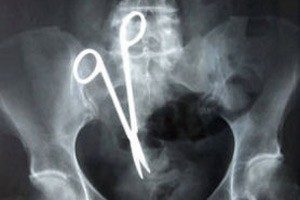A doctor is facing complaints after a man was left with holes in his chest muscle and later died due to cosmetic procedure, according to the Florida Department of Health.
The administrative complaint against the Fort Lauderdale doctor claims that “the patient ultimately died as a result” of the liposuction, which allegedly left perforations throughout the 58-year-old’s chest. The procedure involved VASER, a type of ultrasound with vibration amplification of sound at resonance in January 2021. The patient then returned in 2022 “for a repeat,” according to reporting from the Miami Herald this week.
Repetitive VASER-assisted liposuction comes with risks such as infection, bleeding, never damage and scarring, which can cause perforation. The complaint alleges that the doctor “failed to document any discussion” with the patient about the additional risks associated with a repeated procedure.
 Florida Injury Lawyer Blawg
Florida Injury Lawyer Blawg


 Turned down by other law firms, a young widow whose husband had been abhorrently ignored by ER doctors at a Florida Hospital turned to Leesfield & Partners for help. Ten months later, Leesfield & Partners was able to secure a multi-million dollar settlement during the claim’s pre-suit period, for the loss of her husband and for her young son’s loss of his father.
Turned down by other law firms, a young widow whose husband had been abhorrently ignored by ER doctors at a Florida Hospital turned to Leesfield & Partners for help. Ten months later, Leesfield & Partners was able to secure a multi-million dollar settlement during the claim’s pre-suit period, for the loss of her husband and for her young son’s loss of his father. With the prices you pay at the hospital, you shouldn’t have to worry about asinine medical errors. Yet they abound. As quality medicine standard-bearer
With the prices you pay at the hospital, you shouldn’t have to worry about asinine medical errors. Yet they abound. As quality medicine standard-bearer 